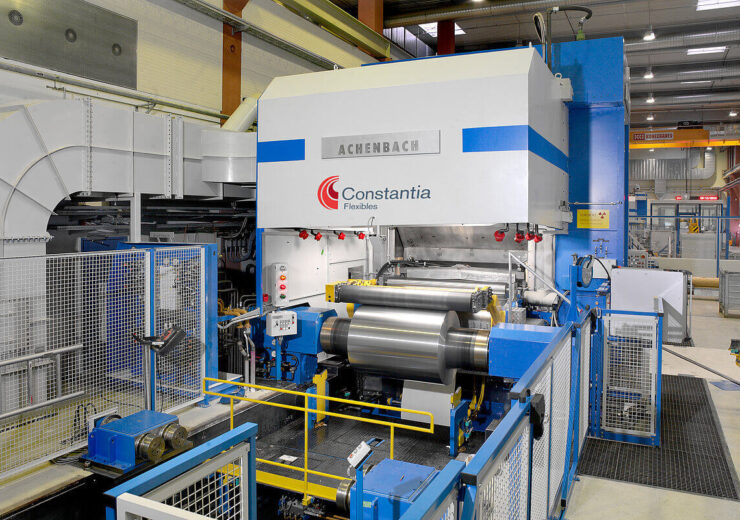The funds will be used for a new rolling mill and lacquering line and to reduce the CO2 footprint by powering the rolling mill with green electricity and adding solar power generation

Constantia is investing more than EUR 80 million in its Constantia Teich facility in Austria. (Credit: Constantia Flexibles)
Flexible packaging maker Constantia Flexibles has announced an investment of more than €80m in its Constantia Teich facility in Austria.
The funds will be used to build a new rolling mill and another lacquering line to enable the firm to seize market expansion prospects while protecting the supply chain.
Constantia will also invest in sustainability by lowering the CO2 footprint, using green electricity to run the rolling mill, and including solar power generation.
The expanded rolling capacity, making Teich factory the largest integrated producer in Europe, will help Constantia to produce 90,000 tonnes (+30%) of aluminium foil in Austria.
Constantia Flexibles said that the carbon footprint is much smaller when the foils are produced at Teich than when they are imported from outside of Europe. This will save more than 100,000 tonnes of CO2 along with securing the supply chain through in-house production.
Constantia Flexibles CEO Pim Vervaat said: “We continue to pursue our successful growth strategy with new state-of-the-art technology at our Teich factory.”
The firm plans to use the second lacquering machine to expand capacity in important development sectors like coffee capsules. Solar panels with a total surface area of several thousand square metres will be mounted on the roofs of some of the structures.
Constantia Flexibles Aluminum Division executive vice president Dr Gerald Hummer said: “We are more independent and therefore more crisis-proof.”
The packaging firm said that the comprehensive expansion project also includes structural and infrastructural improvements for the foil production facility.
Expected to start in the fall of 2022, the project also involves investing in a rolling mill, a slitting line, annealing furnaces, and expanding the existing high-bay warehouse.
Commercial manufacturing is anticipated to begin in the spring of 2025 with a focus of production will be on premium packaging for the pet food, food, pharmaceutical, and coffee industries.
